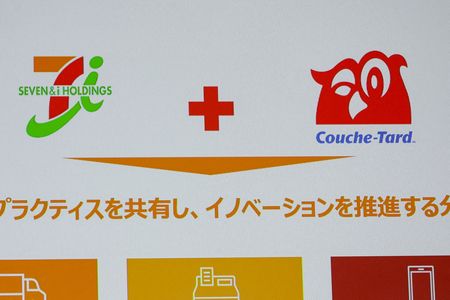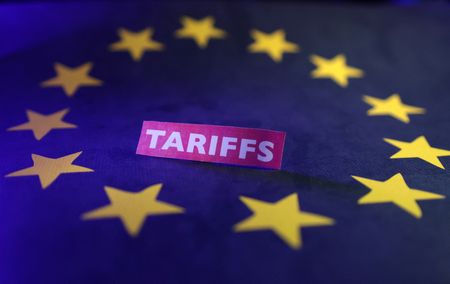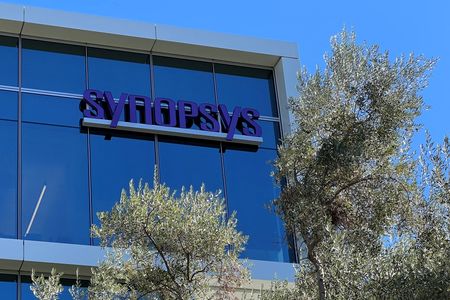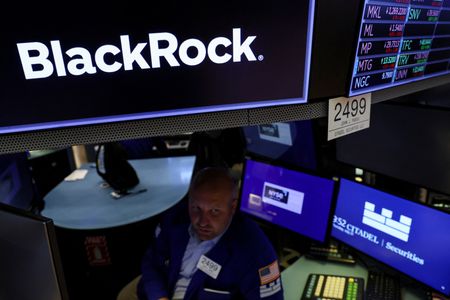By Abigail Summerville and Anton Bridge
NEW YORK/TOKYO (Reuters) – Convenience store chain giants Couche-Tard and Seven & i, who are taking steps to divest thousands of stores they collectively own in North America to ease regulatory concerns ahead of a potential merger, are faced with an early test for the plan – attracting rival suitors for the stores.
The two store operators are likely to struggle to solicit offers from other convenience store chains that might be wary of their own potential antitrust risks arising from such a deal, according to people familiar with the matter and several antitrust experts. Seven & i owns the 7-Eleven convenience store chain, which has more than 12,000 stores in the U.S.
So far, most of the interested buyers for the stores are private equity firms, the sources said. This creates a potential headache for Canada’s Couche-Tard and Japan’s Seven & i as U.S. antitrust regulators typically frown upon private equity firms as buyers of divested stores, as they are unlikely to be long-term owners.
The U.S. Federal Trade Commission does not normally view investment firms as desirable acquirers of divested stores since the private-equity business model prioritizes short-term returns, the experts added.
“The agency will have a strong preference for a strategic buyer,” said Michio Suzuki, an antitrust partner at Baker McKenzie in Tokyo. “From their point of view, the divestiture purchaser should be strong enough to run the divested stores as a viable competitive unit.”
The divestiture package proposed by the companies consists of more than 2,000 U.S. stores. However, there is no precedent for private-equity ownership of convenience stores carved out in the aftermath of a big merger, experts said.
Financial acquirers have bought divested grocery and dollar stores out of bigger retail mergers, but they have a mixed track record of running them successfully.
For example, when Dollar Tree acquired Family Dollar in 2015 for around $9 billion, the FTC made the companies divest hundreds of stores. Dollar Tree picked investment firm Sycamore Partners as the buyer for 330 stores, but two years later, Sycamore sold the stores to Dollar General because it could no longer operate them as a viable standalone business.
Sources familiar with Couche-Tard and Seven & i have argued that their divestiture package consists of competitive stores in many states that a private equity firm can operate successfully.
The companies, so far, have received early interest from buyout firms, who are keen to explore the chance to own scaled-up convenience store operations with a nationwide footprint, according to five sources. However, some of the firms are cautious about bidding on an asset coming out of a merger that is not even close to being signed, three of the sources said.
KROGER-ALBERTSONS FALLOUT
Large retail mergers have faced mounting challenges from antitrust regulators across the world in recent years.
The overhang from a recently failed U.S. grocery megadeal forced Couche-Tard and Seven & i to take the unusual step of preemptively shrinking their potential combined business in North America, before proceeding with merger talks.
Seven & i is keen to avoid a repeat of what it has referred to as “the disastrous story of Kroger/Albertsons.” Seven & i has already received a notice from the FTC warning of an investigation into a potential merger with Couche-Tard – something that is rare before a deal has been formally signed.
The Kroger-Albertsons deal was first announced in 2022 but manifold efforts to convince U.S. antitrust authorities – including a proposed $2.9 billion divestiture of 579 stores to C&S Wholesale Grocers – to wave the deal through proved unsuccessful. The FTC rejected C&S as a credible buyer and called the divestiture package a “hodgepodge of unconnected stores.”
“Any target in a large-scale, retail-store merger is going to take notice and be very cautious after that,” said Alex Livshits, a partner at law firm Fried Frank.
Wary of meeting the same fate, the 7-Eleven convenience store chain owner has batted away Couche-Tard’s takeover attempts since August. It has previously argued that the grocers’ December decision to give up on their $25 billion merger after significant regulatory pushback is a cautionary tale for retail mergers.
Seven & i eventually proposed early, joint regulatory work to assuage potential antitrust concerns – to which Couche-Tard agreed in recent weeks.
Seven & i is the No. 1 operator of U.S. convenience stores with roughly 12,650 while Couche-Tard is the second-biggest with about 7,100. A combined company would be almost seven times the size of the next largest competitor Casey’s.
“There’s risk in going in with a completely buttoned-up divestiture to a third party that’s binding,” said Kathy O’Neill, a partner at Fried Frank and former member of the Department of Justice’s antitrust division.
“The risk (is) that the agency doesn’t like the buyer you’ve selected or decides they want to see more assets or stores divested,” she said.
Companies normally seek regulatory approval only after signing deals.
Some experts said the collapse of the Kroger-Albertsons deal has created a potential road map for successful regulatory approval for future retail mergers, providing a lesson in what not to do. The pre-emptive move from Couche-Tard and Seven & i also has the advantage of giving them more time to warm up regulators to the idea of approving the deal, experts added.
(Reporting by Abigail Summerville in New York and Anton Bridge in Tokyo; Additonal reporting by Rocky Swift in Tokyo; Editing by Anirban Sen, Edwina Gibbs and Matthew Lewis)











